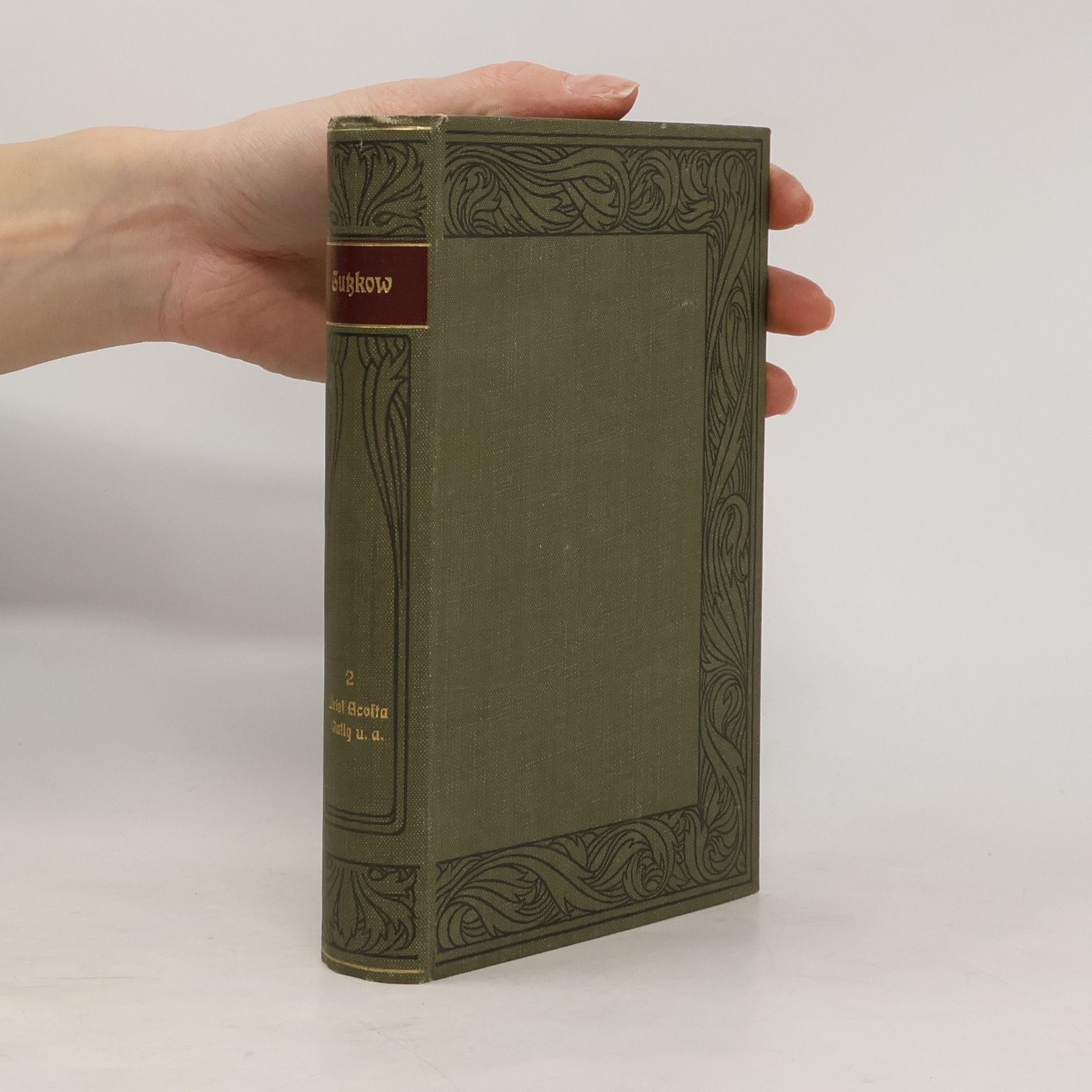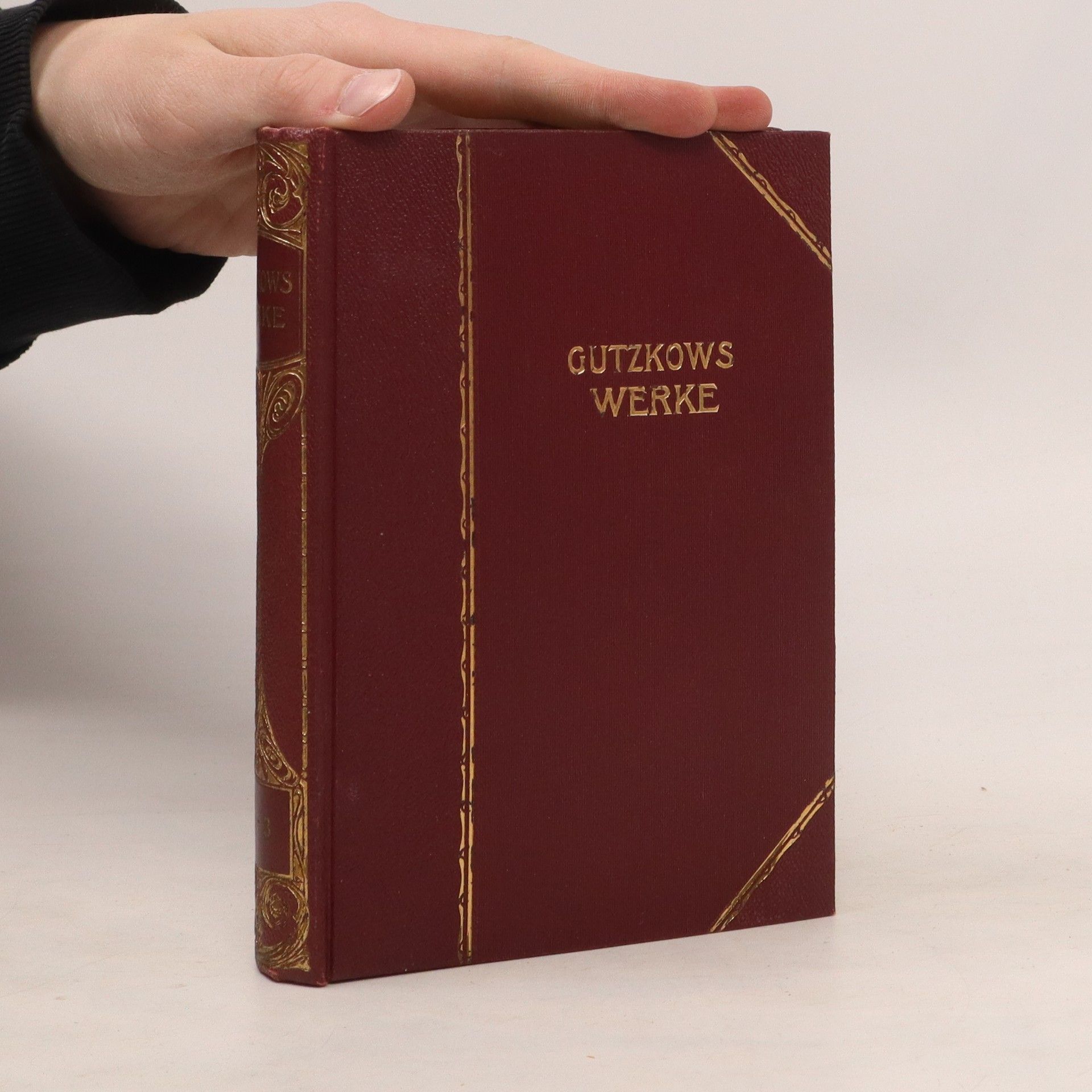Drei Bände plus ein Materialienband (Hrsg. von Adrian Hummel und Thomas Neumann)
Karl Gutzkow Books
Karl Gutzkow was a German writer and a central figure of the Young Germany movement. His work was characterized by early elements of Realism, reflecting the intellectual and social currents of his era. Gutzkow explored themes crucial to the 19th century, leaving a significant mark on German literature.






Die neuen Serapionsbrüder
- 642 pages
- 23 hours of reading
Gutzkows von Arno Schmidt empfohlenes Spätwerk über das Versinken bürgerlicher Werte in Börsencrash, Egoismus und Korruption. In seinem letzten Roman, der 1877, zwei Jahre vor dem Tod des Autors, erschienen ist, wendet sich Gutzkow noch einmal der Aufgabe zu, einen weiträumigen Gesellschafts- und Zeitroman zu schreiben. Anknüpfend an seine großen »Panorama-Romane« der 5oer Jahre, »Die Ritter vom Geiste« und »Der Zauberer von Rom«, entwirft Gutzkow ein Spiegelbild der Gründerzeit nach dem deutsch-französischen Krieg von 1870/71. »Die neuen Serapionsbrüder« handeln vom Niedergang der altliberalen bürgerlichen Gesellschaft und vom Aufstieg einer neuen Klasse von Spekulanten, die ohne Rücksicht auf das allgemeine Wohl ausschließlich an der Maximierung der Gewinne interessiert ist. Während die alten Ideale verschwinden und die alten Vorurteile sich weiter halten, wird das neue radikal kapitalistische System durch die Wirtschaftskrise von 1873 schwer erschüttert. Im Mittelpunkt des Romans, der in Berlin und auf einem Landgut spielt, steht eine Gruppe junger Leute unterschiedlicher Herkunft, die ihr privates und berufliches Glück machen wollen, ohne sich um abgelebte Prinzipien zu kümmern, aber auch ohne ihre persönliche Integrität zu verlieren. Ihnen zur Seite steht die Gesellschaft der neuen Serapionsbrüder, deren Mitglieder den Fortschritt der Korruption in Politik und Gesellschaft kommentieren.
Briefe eines Narren an eine Närrin
- 208 pages
- 8 hours of reading
Karl Gutzkow, ein bedeutender Vertreter des Jungen Deutschlands, thematisiert in seinem Debütroman die politischen und gesellschaftlichen Umwälzungen des Vormärz. Mit seinem Werk "Briefe eines Narren an eine Närrin" kritisiert er reaktionäre Tendenzen und setzt sich für eine freiheitliche Republik ein. Trotz des Verbots kurz nach der Veröffentlichung im Jahr 1832 besticht der Roman durch die gelungene Verbindung von Poesie und politischem Engagement, wodurch er zu einem wichtigen Zeugnis der jungdeutschen Bewegung wird.
Karl Gutzkow: Wally, die Zweiflerin. Roman Lesefreundlicher Großdruck in 16-pt-Schrift Was Religion! Was Weltschöpfung! Was Unsterblichkeit! Rot oder blau zum Kleide, das ist die Frage. Ob's besser ist, die Haare zu tragen à la Madeleine oder sie zusammenzukämmen zu chinesischem Schopfe? Die Geschichte der mondänen Wally, die - von ihrer Umgebung endlos gelangweilt - den Lebemann Cäsar trifft und sich den wesentlichen Dingen ihrer Welt widmet bringt Karl Gutzkow 1835 für einen Monat ins Gefängnis wegen verächtlicher Glaubensdarstellung. Großformat, 210 x 297 mm Berliner Ausgabe, 2020 Durchgesehener Neusatz mit einer Biographie des Autors bearbeitet und eingerichtet von Theodor Borken Erstdruck: Mannheim (C. Löwenthals Verlagshandlung) 1835. Textgrundlage ist die Ausgabe: Karl Gutzkow: Wally, die Zweiflerin. Roman. Studienausgabe mit Dokumenten zum zeitgenössischen Literaturstreit. Herausgegeben von Günter Heintz, Stuttgart: Reclam, 1979 [Universal-Bibliothek, Band 9904]. Umschlaggestaltung von Thomas Schultz-Overhage unter Verwendung des Bildes: Ernst Ludwig Kirchner, Die Straße (Ausschnitt), 1913. Gesetzt aus der Minion Pro, 16 pt. Henricus Edition Deutsche Klassik UG (haftungsbeschränkt)



